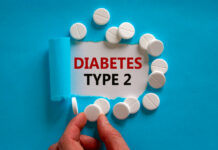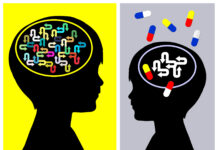Antidepressant Trials Last Eight Weeks, So Why Do We Take Them for Years?
The studies are of short duration and are riddled with methodological issues like unblinding and failure to assess withdrawal.
Antidepressant Withdrawal Symptoms Linked to Life-Altering Consequences, New Study Shows
A new study reveals that withdrawal symptoms from antidepressants can last years, disrupting lives and relationships.
Psychiatric Drugs “A Crude Form of Chemical Restraint”
Mental health nursing has a key role to play in helping people discontinue the drugs, writes Timothy Wand.
Antidepressants Increase Suicide Attempts in Youth; No Preventative Effect
Researchers find that SSRIs increase suicide attempts up to age 24, and have no preventative effect at any age, even for those at high risk of suicide.
Animal Study: SSRI Neurotoxic in Pregnancy
Researchers: Fetal exposure to vilazodone hampers neurodevelopment and leads to "long-lasting neurodevelopmental impairments."
Therapy Beats Drugs for Depression for Long-Term Outcomes
Combining drugs and therapy also did not lead to better depression outcomes than therapy alone.
Researchers Search for Subgroups Where Antidepressants Are More Effective
The researchers theorized that this increased effectiveness was due not to “antidepressant” properties, but rather to the drug’s side effects, which include insomnia, drowsiness, and nausea.
New Study Links Antidepressants to Increased Risk of Diabetes
Using genetic analysis, a new study finds that antidepressants—not depression—are responsible for a significant rise in type 2 diabetes risk.
Peer-Support Groups Were Right, Guidelines Were Wrong: Dr. Mark Horowitz on Tapering Off Antidepressants
In an interview with MIA, Dr. Horowitz discusses his recent article on why tapering off antidepressants can take months or even years.
Antidepressants No Better Than Placebo for About 85% of People
Researchers can’t predict the 15% who benefit from antidepressants, and the other 85% are unnecessarily exposed to the harms of the drugs.
Randomized Controlled Trial Confirms That Antipsychotics Damage the Brain
A new study published in JAMA Psychiatry connects antipsychotics with damage to the brain in multiple areas.
Hyperbolic Tapering off Antidepressants Limits Withdrawal
New research by Jim van Os and Peter Groot finds that using hyperbolic tapering to discontinue antidepressants reduces withdrawal effects.
Robin Williams On Antidepressant at Time of Suicide
Robin Williams had "therapeutic" levels of the tetra-cyclic antidepressant mirtazapine in his blood at the time of his suicide, according to the coroner's report...
Recovery Rate Six Times Higher For Those Who Stop Antipsychotics Within Two Years
People with "serious mental illness" who stop taking antipsychotics are more likely to recover, even when accounting for baseline severity.
Antidepressants in Dementia Patients Increase Risk of Death and Fractures
A large-scale study reveals that antidepressant use is linked to faster cognitive decline in dementia patients, raising concerns about their widespread prescription.
Overuse of Psychiatric Drugs is Worsening Public Mental Health, Doctor Argues
A new research article asserts that the overuse of psychiatric drugs may create neurobiological changes that hamper long-term mental health recovery.
Open Dialogue Approach Reduces Future Need for Mental Health Services
The Open Dialogue psychiatric treatment approach is associated with reduced utilization of mental and general health services for Danish youth.
Benzodiazepines Linked to Suicide, Study Finds
A new study finds that benzodiazepines—alprazolam (Xanax), lorazepam (Ativan), and diazepam (Valium)—are associated with an increased risk of suicidal events.
Are Antidepressants Weakening Women’s Bones?
A study spanning two decades finds that antidepressant use is associated with a 44% increase in osteoporosis risk and a 62% higher chance of fractures.
Antidepressants Linked to Lasting Sexual Dysfunction, Study Finds
New research highlights the challenges in quantifying the prevalence of Post-SSRI Sexual Dysfunction (PSSD), a condition that continues to affect patients long after they stop taking antidepressants.
Long-term Use of Lithium Can Cause Kidney Failure
A third of patients who have taken the common psychiatric medication lithium for over ten years have developed "chronic renal failure" from the drug.
Antipsychotics Increase Risk of Dementia; New Research Illuminates Why
In JAMA psychiatry, researchers outline new theories connecting antipsychotic use in people with schizophrenia and increased dementia risk.
New Book Deconstructs Ideology of Cognitive Therapy
CBT forwards a hyper-rational perspective of human suffering that complements a managerialist culture of efficiency and institutionalization in the Western world.
Transcranial Magnetic Stimulation No Better Than Placebo for Treatment-Resistant Depression
A new study in JAMA Psychiatry found that transcranial magnetic stimulation was no better than placebo for treatment-resistant depression.
ADHD Drugs Linked to Psychosis and Mania
In one analysis, those on a high dose of prescription amphetamines were more than 13 times more likely to develop psychosis/mania.

































